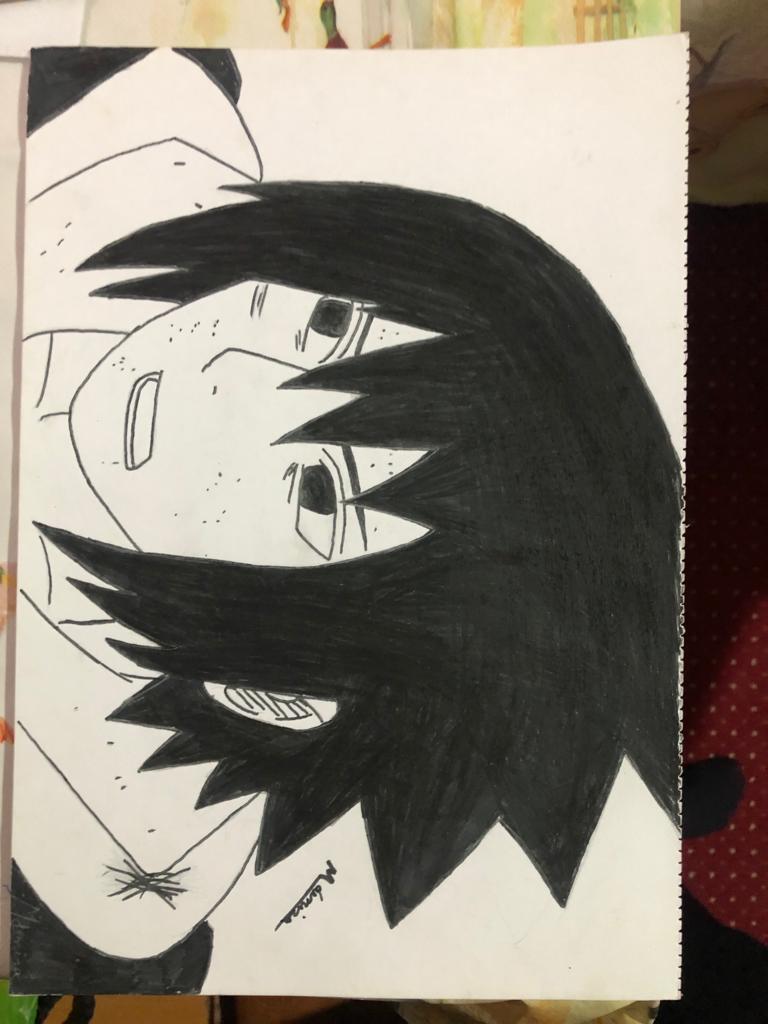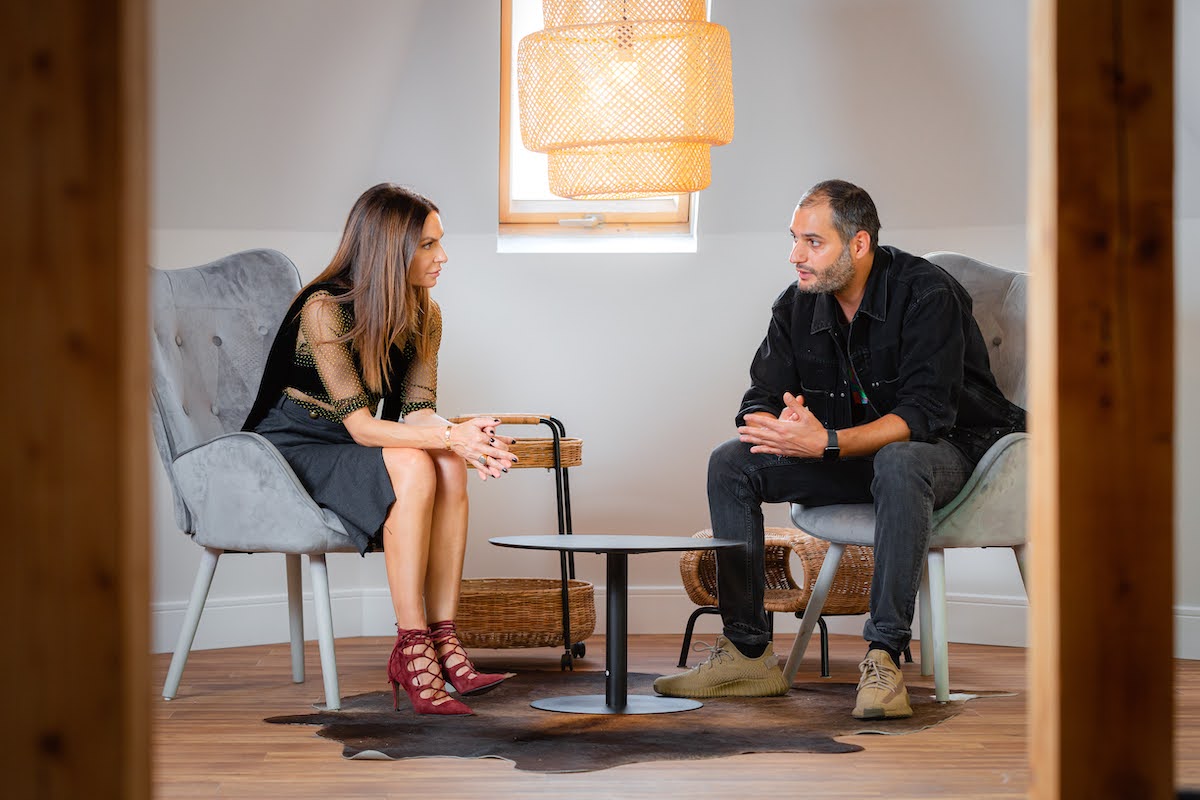
Melinte’s family lives in an old adobe house with a wooden front door. With their mother ill, the seven siblings depend on each other. A few people who share a passion for design decided to move them to a new home. We spoke with Alina Vilku and Omid Gannadi, founders of Inside Social Association, to see how business combines with the desire to do good.
“There was not a single day that I was not beaten. Children are beaten, run away, kicked out with bare feet,” says Corina, a mother of seven brothers and sisters from a village in Transylvania, in a video by the association Inside Social.
She is 35 years old, she became a victim of domestic violence. There was not a single day when she could avoid being beaten by her husband, and this led to a difficult diagnosis: spastic tetraparesis.
She achieved protection from her husband, and the main support all this time were children. She is tormented by the thought that he was a healthy man who could work and walk as he pleased, and who suddenly stopped moving well from the waist down.
Melinte’s family lives in a “borrowed” adobe house painted light blue and doors with green wooden facades. The oldest of the children is Maryan, who is 19 years old and wants to enter the faculty of mechatronics.
Unfortunately, after their mother became ill, she could no longer keep up with school and failed her high school diploma. He plans to take it again next year and continues to work toward becoming a student.
Each of the seven brothers wants to have a job: Julian wants to play the saxophone, Denisa draws anime and wants to become an artist, Mirela plays with makeup brushes and hopes to become a famous makeup artist.

The anime drew Denis. PHOTO: Personal archive
Mihai and Nikolas have brown round eyes, and wrinkles form around their eyes from their constant smiling. The first wants to be a policeman, and the second – a firefighter. Lecramioara remains, who helps in the kitchen every day, and therefore realized that she would like to become a pastry chef.
One day, Catalin Krimu, a professor of religion from Bucharest, came to Melinte’s family. He presented their case at school, and this is how Štefan Davyd Dobre learned about the conditions in which the eight lived in Unguren.
Stefan is a 17-year-old interior designer. Since childhood, he watched the show “Dreams on the Key” and wanted to end the same way. He decided to write to Alina Vilka on Instagram and express his desire to attend interior design courses at the Inside Academy.
He met her and Omid Gannadi, and a friendship developed between them. He also turned to them when he learned about Melinte’s family for support.
In a short time, Inside Social was born, an association separated from Inside Academy, which includes former students united by the need to do good.
Alina and Omid have known each other for about eight years, they also worked together on Turnkey Dreams, and the transition to the secular side was natural. Omid has a notebook where he draws and writes, and talks about how Inside Social was born and what plans they have for Melinte’s family.
Events, at first glance, are not related to each other, which led to the need to do good

The home of the Melinte family. PHOTO: Personal archive
“Inside Social is about giving back to society through community. This is an association we created together with the trainees from Inside Academy, which now has a group of active members working on the case of the Melinte family, a case recommended by the youngest trainee at the time,” Omid continues.
In addition to the three of them, several people work every day in the future building in Unguren. Persida is a psychotherapist and an interior designer, but now she also does this. So are the rest.
None of them had an activist background, but they were able to find an application of what they were doing and use it to do good, not just make a profit.
This is how architects, project managers, insurance consultants, psychotherapists, economists, mothers on maternity leave, lawyers, communication students and engineers came together. They all came together through design and stayed to bring added value.
Even if they just now laid the foundation for something concrete, because something official was needed to start the whole mechanism, Alina and Omid also experienced something similar in the past.
“We both felt the experience of doing good deeds, spreading good around us in “Turnkey Dreams”. It was eye-opening for me to see that doing good for the community is not all about hard work and sacrifice. It can be an experience of deep human connection,” says Alina.
Even if they weren’t ready, with all the projects they were currently doing, to create an association, they couldn’t refuse. A period of fear came, which they overcame together and with the help of former students of Inside Academy.
“I didn’t open the mail because I was afraid”
Things began to move naturally, but there was an initial period of great uncertainty about what was to come. Omid mentions that he didn’t open the letter from Stefan because, despite their experience with Turnkey Dreams and the other times he’d been involved in similar promotions, he didn’t know how to handle the situation they had taken on. take full responsibility.
Alina’s main fear was related to money and how she would get it. Omid starts laughing when she says this and challenges her to tell how they managed to raise enough money to implement the plan for Melinte’s family home.
“From a panic of the type “Oh, what should I do with the money?”, Alina managed to be the first in the team to set up a fundraising project without thinking about anything complicated. It was about her birthday party, which was a huge success,” Omid explains.

Alina Vilku and Omid Gannadi. PHOTO: Personal archive
That’s how he got rid of his fear of money and realized that what’s more difficult is figuring out what to do with it to maintain the quality standard you’ve set.
Omid, on the other hand, feared that they would not be able to meet the date they had set for the completion of the project. They want Melinte’s family to move into a new house by Christmas.
In the first episode of his podcast, Design Stories, Omid says that “design should be unique and authentic where it happens.” The same principle applies in the Ungureni house.
A passive house adapted to the needs of the Melinte family
What they plan for Melinte’s family and the future of Inside Social is to provide them with a high standard home that can be maintained without much expense. This is a passive house with minimal consumption.
“Although the project is a simple house, it has some complex structural details. They are not necessarily much more expensive, but they require the builder to know how to apply them in practice,” Alina explains.
To do this, he collaborated with passive house specialist Marius Soflet, who proposed a construction proposal that can be easily supported. Next to him are engineers Cosmin Stamata and Cristi Ceausescu, who ensured the strength and functionality of the building.
The house will include a large living room where the whole family can gather around the table. In addition, each child will have a working and sleeping area. Guided by the principle stated by Omid, according to which the design should be authentic, they want to offer them a home in which they feel comfortable.
“Although the house for the Melinte family is not an artistic, sculptural architectural object, it is a demonstration that the whole project was thought out in relation to the context. Whether we put up shutters or not, the color, the roof, the veranda, how big the rooms are, all this was thought out as authentic,” Alina continues.
It is important that in the end the house looks like a country house and not a UFO. This, in fact, is the main challenge of architects: to create things that correspond to the context in which they are located.
“It doesn’t have to be a bright presence in a village near Bacau. It should be an invisible presence, like a living framework that makes people’s lives easier and more beautiful. What does it mean? That I should come up with a familiar house for them,” Alina adds. That’s what they tried to do at Inside Academy, and they’re applying the same thing to what they’re doing at Inside Social.
“A project cannot be successful if it does not affect society”
Alina and Omid founded Inside Academy six years ago. From the beginning, they knew they wanted to give back to the community what they knew. However, something was missing.
If in “Turnkey Dreams” they were only a cog in a much larger mechanism, then in a short time they began, as Alina says, “addicted to doing well.” Omid had previously renovated someone’s house and felt that he could combine what he does every day with this. He doesn’t see design and work at Inside Social as two separate things.
They both realized that they had power in their work and that they could pass it on. Alina had a hard time at first because she felt guilty that her situation was better than others. Gradually, he realized that he actually had an asset here and that he could help further.
“I have a theory. In my life, I have not met a successful person or a successful project that would matter if it did not have an impact on society or activate in the community. Indeed, for me, if someone does really good work, but does not affect society in a positive way, it does not matter,” explains Omid,
“It is like a rock that takes its place on this earth. So if we thought we were doing what we were doing well, it wouldn’t matter if we weren’t also deeply involved in society.”
- Read also: Invisible people of Bucharest: “I prayed, I worked and did not choose anything. I am a man of the flesh as long as my heart endures?”
Source: Hot News
Ashley Bailey is a talented author and journalist known for her writing on trending topics. Currently working at 247 news reel, she brings readers fresh perspectives on current issues. With her well-researched and thought-provoking articles, she captures the zeitgeist and stays ahead of the latest trends. Ashley’s writing is a must-read for anyone interested in staying up-to-date with the latest developments.